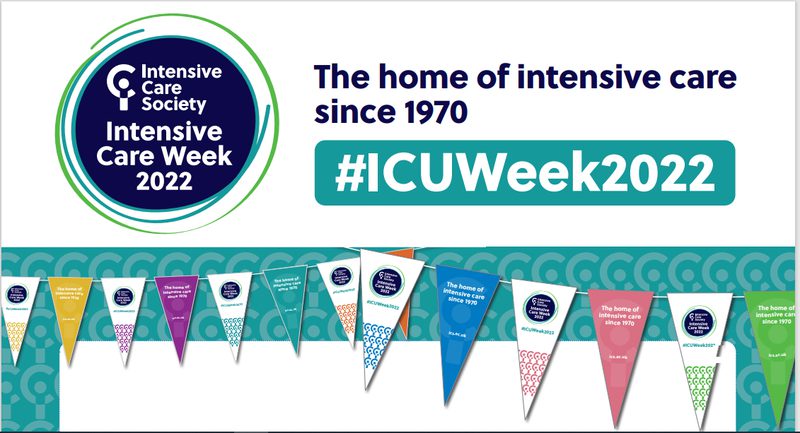
Posted on: June 08, 2022
National Intensive Care Week (6-12 June)
Did You Know about the Importance of Nutrition in the ICU?
This week is National Intensive Care week (6-12 June 2022) which celebrates the intensive care specialty and those working within it. Caring for the sickest patients in hospitals takes a large multi-disciplinary team of healthcare professionals including doctors, nurses, physiotherapists, speech and language therapists, occupational therapists, and dietitians. In recognition of the week and the many different ways ICU patients need to be cared for, this blog gives an overview of the importance of specialist nutrition and the role of the dietitian in the intensive care unit (ICU). All patients spending more than 48 hours in an ICU are considered to be at risk of of malnutrition.1 Many ICU patients are sedated and ventilated and therefore unable to eat and drink normally. It is important that these patients receive specialist nutrition therapy to prevent malnutrition which may impair recovery and increase the amount of time spent in the hospital.2
Specialist critical care dietitians work in the intensive care multi-disciplinary team. They will carry out a detailed assessment of the patient, considering individual factors such as weight, height, current medical condition, biochemical markers, recent history and lifestyle. The dietitian will create a tailored plan to meet the nutritional needs of the patient - calculating how much protein, vitamins and minerals and how many calories are required - and will discuss fluid requirements with the medical team.
The dietitian will discuss the most appropriate method of feeding with the medical team. For a patient who is sedated, a naso-gastric (NG) feeding tube is usually the first method considered. This is a tube which is inserted into the patient’s nose and guided to the stomach.
Depending on the patient’s medical condition, they may not tolerate an NG tube and may require naso-jejunal (NJ) feeding. This is a tube which is again inserted into the nose but is guided past the stomach and into the small intestine.
Specialist enteral feeds are designed to be administered through a feeding tube to meet a patient’s specific nutritional needs. A variety of specialist nutritional products exist to allow the dietitian to develop a plan to precisely meet the patient’s need.
Some products are higher in protein, some are higher in energy, others are low in salt or low in certain electrolytes. Patients in the ICU can have very different nutritional requirements than people in the general population due to the stress their body is being put under. Manufacturers continue to develop new and innovative products to meet the needs of patients.
Sometimes patients in the ICU may be unable to meet their nutritional needs via the usual digestive tract and would instead need ‘parenteral’ nutrition. Parenteral nutrition is the delivery of nutrition through the veins (‘intravenously’). Patients in the ICU may experience intestinal failure for a number of reasons, such as temporary inflammation in the gut causing it to stop working, a bowel obstruction causing a blockage or a chronic condition which has resulted in removal of significant sections of the digestive tract, e.g. Crohn’s disease.
Specialist nutrition manufacturers offer a wide range of standard parenteral nutrition solutions as well has producing bespoke solutions to meet individual patient needs if required.
Nutrition may not be the first thing which comes to mind when we think of the ICU, but it is a very important part of the optimal management of the ICU patient. In celebrating the ICU community, the role of the dietitian in ensuring good nutritional care for ICU patients is well deserving of recognition in Intensive Care Week!
1 Singer P., Reintam Baser A., Berger M., et al. (2019) ESPEN guideline on clinical nutrition in the intensive care unit. Clinical Nutrition. 38 (2019), 48-79. Available from: https://doi.org/10.1016/j.clnu.2018.08.037
2 Stratton R., Smith T., and Gabe S. (2018) Managing malnutrition to improve lives and save money. BAPEN (British Association of Parenteral and Enteral Nutrition). Available from: https://www.bapen.org.uk/pdfs/reports/mag/managing-malnutrition.pdf